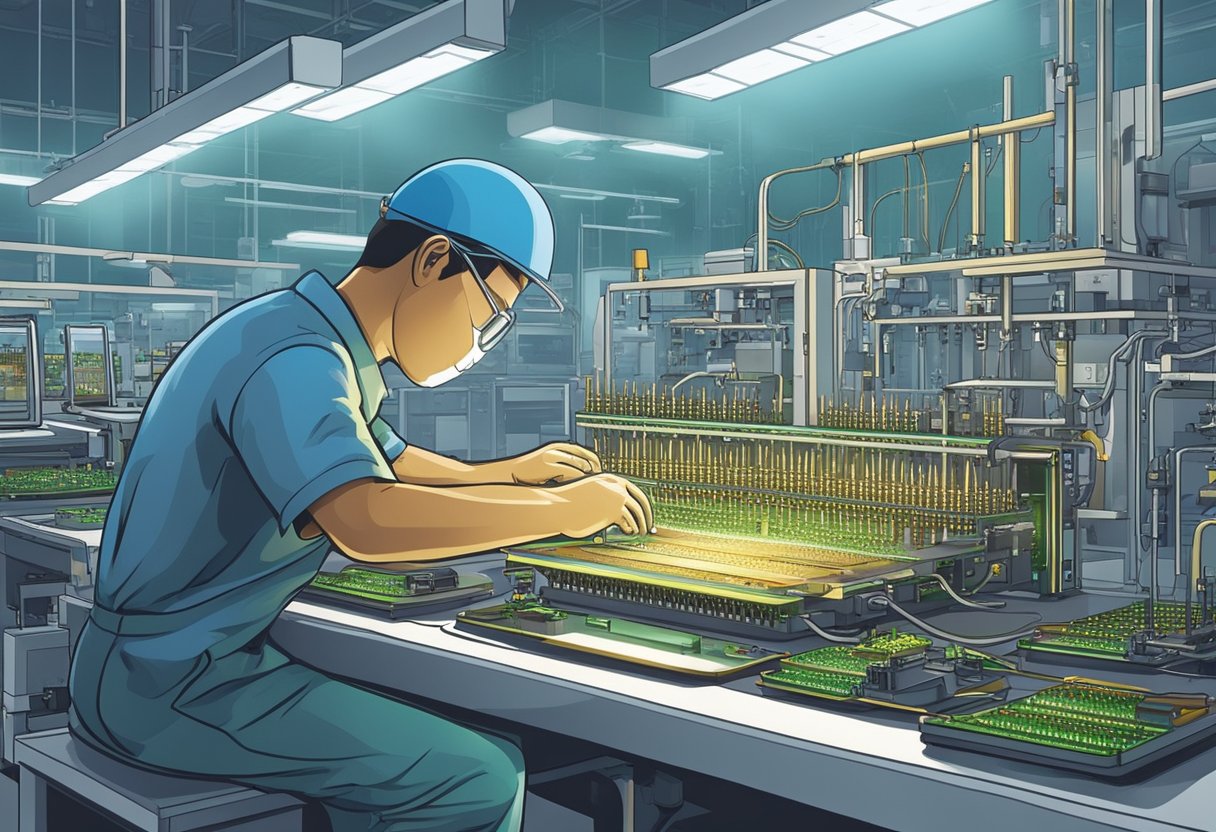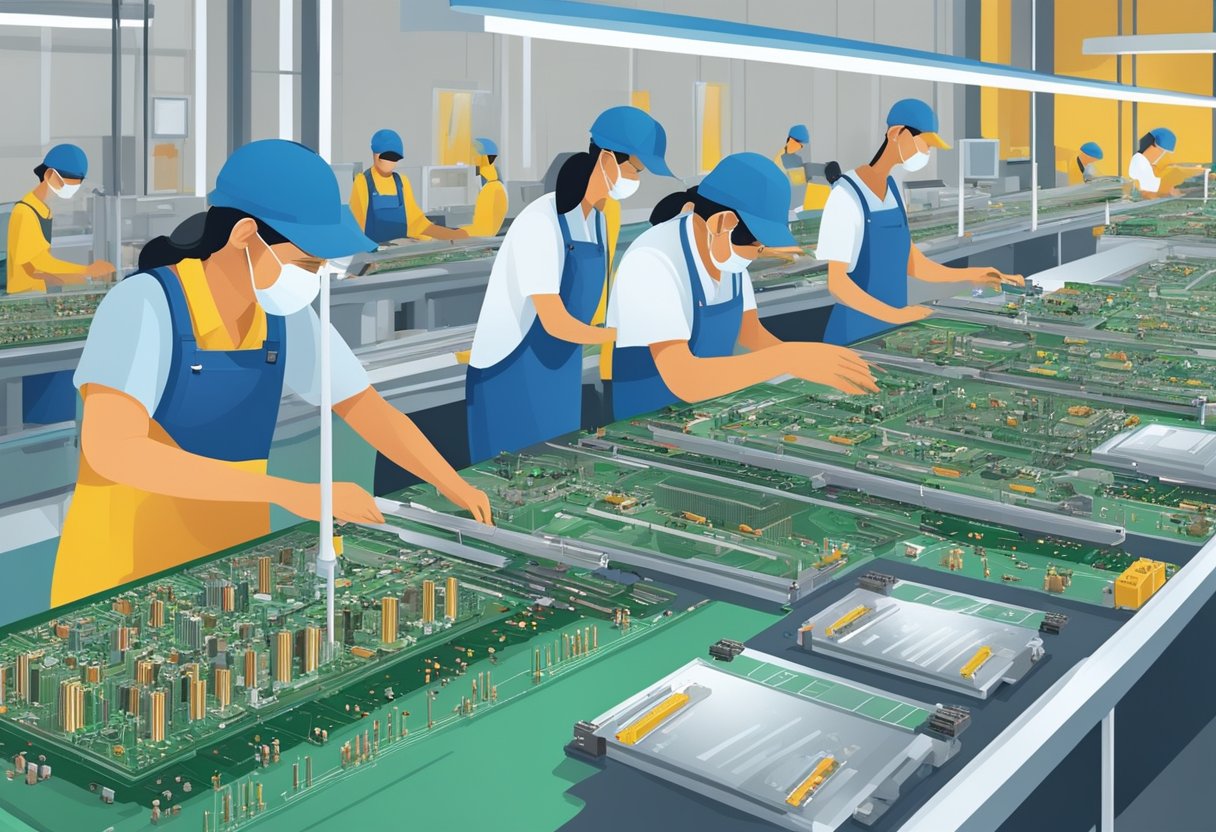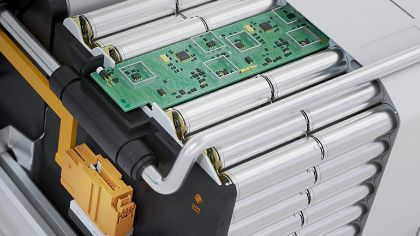PCB Assembly Malaysia: Top Companies for High-Quality Circuit Board Manufacturing
PCB assembly is a vital part of the electronics manufacturing industry. The process involves mounting electronic components onto a printed circuit board (PCB) to create a functional electronic device. PCB assembly is a complex process that requires precision, expertise, and state-of-the-art equipment.

Malaysia is a leading destination for PCB assembly services. The country has a well-established electronics manufacturing industry, with a highly skilled workforce and advanced infrastructure. PCB assembly companies in Malaysia offer a wide range of services, including surface mount technology (SMT), through-hole assembly, and mixed technology assembly. They also provide value-added services such as testing, inspection, and packaging. With its competitive pricing, high-quality services, and fast turnaround times, Malaysia has become a popular choice for companies looking to outsource their PCB assembly needs.
Overview of PCB Assembly in Malaysia

Malaysia has become a popular destination for PCB assembly due to its skilled workforce, competitive pricing, and advanced technology. The country has a well-established electronics industry, with many local and international companies operating in the country.
One of the advantages of PCB assembly in Malaysia is its strategic location in Southeast Asia. The country has a strong transportation infrastructure, making it easy to import and export goods. This has made Malaysia an attractive location for companies looking to expand their operations in the region.
Malaysia also has a strong focus on research and development, with many universities and research institutions conducting cutting-edge research in electronics and related fields. This has led to the development of advanced technologies and innovative solutions for PCB assembly.
In addition, Malaysia has a skilled workforce with expertise in PCB assembly and related fields. Many workers have received training in electronics and are able to handle complex PCB assembly projects. This has made Malaysia a popular destination for companies looking to outsource their PCB assembly needs.
Overall, PCB assembly in Malaysia offers many benefits, including competitive pricing, advanced technology, and a skilled workforce. As a result, the country has become a leading destination for PCB assembly in Southeast Asia and beyond.
Key Players in Malaysia’s PCB Assembly Industry
Malaysia’s PCB assembly industry has been growing rapidly in recent years, attracting both local and international players. Here are some of the key players in the industry:
Local Manufacturers
Local manufacturers have been the backbone of Malaysia’s PCB assembly industry. They have been providing high-quality PCB assembly services to both local and international customers. Some of the major local manufacturers in Malaysia include:
- Unisem (M) Berhad: Unisem is a leading provider of semiconductor assembly and test services. The company has been operating in Malaysia for over 30 years and has a strong presence in Asia, Europe, and the Americas.
- Globetronics Technology Berhad: Globetronics is a leading provider of microelectronics and optoelectronics products and services. The company has been operating in Malaysia since 1991 and has a strong customer base in the automotive, consumer electronics, and industrial sectors.
- Pentamaster Corporation Berhad: Pentamaster is a leading provider of automation solutions and test equipment for the semiconductor, electronics, and automotive industries. The company has been operating in Malaysia since 1991 and has a strong presence in Asia, Europe, and the Americas.
International Partnerships
International partnerships have also played a vital role in Malaysia’s PCB assembly industry. These partnerships have helped local manufacturers to gain access to new technologies, markets, and customers. Some of the major international partnerships in Malaysia include:
- Jabil Inc.: Jabil is a leading provider of electronics manufacturing services. The company has been operating in Malaysia since 1994 and has a strong presence in Asia, Europe, and the Americas. Jabil has partnered with several local manufacturers in Malaysia to provide high-quality PCB assembly services to its customers.
- Flex Ltd.: Flex is a leading provider of electronics design, engineering, and manufacturing services. The company has been operating in Malaysia since 1994 and has a strong customer base in the automotive, consumer electronics, and industrial sectors. Flex has partnered with several local manufacturers in Malaysia to provide high-quality PCB assembly services to its customers.
- Sanmina Corporation: Sanmina is a leading provider of integrated manufacturing solutions. The company has been operating in Malaysia since 2007 and has a strong presence in Asia, Europe, and the Americas. Sanmina has partnered with several local manufacturers in Malaysia to provide high-quality PCB assembly services to its customers.
Overall, Malaysia’s PCB assembly industry has been thriving due to the presence of both local manufacturers and international partnerships. With the increasing demand for high-quality PCB assembly services, Malaysia is poised to become a major player in the global electronics manufacturing industry.
Technological Advancements in PCB Assembly
Automation and Robotics
In recent years, the use of automation and robotics in PCB assembly has significantly increased. This technology has allowed for faster and more precise assembly of PCBs, resulting in higher quality products and increased production efficiency. Automated equipment is capable of performing tasks such as placing components, soldering, and testing, which reduces the need for manual labor and human error.
Additionally, robotics in PCB assembly has allowed for the handling of delicate and small components that were previously difficult to handle by hand. The use of automation and robotics has also reduced production costs and increased output, making it a popular choice for PCB assembly in Malaysia.
Surface Mount Technology (SMT)
Surface mount technology (SMT) is another technological advancement in PCB assembly. SMT is a method of mounting electronic components onto the surface of a PCB, rather than through-holes. This technology has allowed for smaller and more compact PCB designs, as well as improved electrical performance.
SMT components are smaller and lighter than through-hole components, which has allowed for the production of smaller and more lightweight electronic devices. Additionally, SMT has allowed for increased production efficiency, as it is a faster and more automated process than through-hole assembly.
Overall, the technological advancements in PCB assembly have allowed for faster, more efficient, and higher quality production of electronic devices. The use of automation and robotics, as well as surface mount technology, has revolutionized the PCB assembly industry and will continue to drive innovation in the future.
Quality Standards and Certifications
ISO Certifications
PCB assembly companies in Malaysia adhere to strict quality standards to ensure that their products meet the requirements of their customers. One of the most important certifications that a PCB assembly company can have is the ISO 9001:2015 certification. This certification ensures that the company has a quality management system in place that meets the international standards set by the International Organization for Standardization (ISO).
ISO 13485:2016 is another important certification for PCB assembly companies that specialize in medical devices. This certification ensures that the company has a quality management system in place that meets the requirements of the medical device industry.
IPC Standards
In addition to ISO certifications, PCB assembly companies in Malaysia also adhere to the standards set by the Institute of Printed Circuits (IPC). IPC standards cover a wide range of topics related to PCB assembly, including design, materials, assembly, and testing.
One of the most important IPC standards for PCB assembly is IPC-A-610. This standard covers the acceptability of electronic assemblies, including criteria for solder joints, component mounting, and cleanliness. PCB assembly companies in Malaysia use this standard to ensure that their products meet the highest quality standards.
Overall, PCB assembly companies in Malaysia are committed to meeting the highest quality standards and certifications to ensure that their products meet the needs of their customers. By adhering to these standards, they can provide their customers with high-quality products that meet their exact specifications.
Challenges and Opportunities
Supply Chain Management
One of the major challenges faced by PCB assembly companies in Malaysia is managing the supply chain. The supply chain is a crucial aspect of the PCB assembly process, as it involves the procurement of raw materials, components, and equipment required for the assembly process. PCB assembly companies in Malaysia need to ensure that they have a reliable and efficient supply chain to ensure the timely delivery of components and equipment.
To address this challenge, PCB assembly companies in Malaysia need to establish strong relationships with their suppliers and implement effective supply chain management strategies. This includes maintaining accurate inventory records, forecasting demand, and implementing just-in-time (JIT) inventory systems.
Skilled Labor and Training
Another challenge faced by PCB assembly companies in Malaysia is the availability of skilled labor. The PCB assembly process requires a high level of technical expertise and precision, which can only be achieved through proper training and experience. However, there is a shortage of skilled labor in Malaysia, which makes it difficult for PCB assembly companies to find qualified workers.
To address this challenge, PCB assembly companies in Malaysia need to invest in training programs to develop the skills of their existing workforce and attract new talent. This includes providing on-the-job training, apprenticeships, and certification programs to ensure that their workers have the necessary skills and knowledge to perform their jobs effectively.
Despite these challenges, there are also opportunities for PCB assembly companies in Malaysia. The country’s strategic location, stable political environment, and skilled workforce make it an attractive location for PCB assembly companies looking to expand their operations in the region. Additionally, the growing demand for electronic products in Asia presents a significant opportunity for PCB assembly companies in Malaysia to increase their market share and grow their business.

